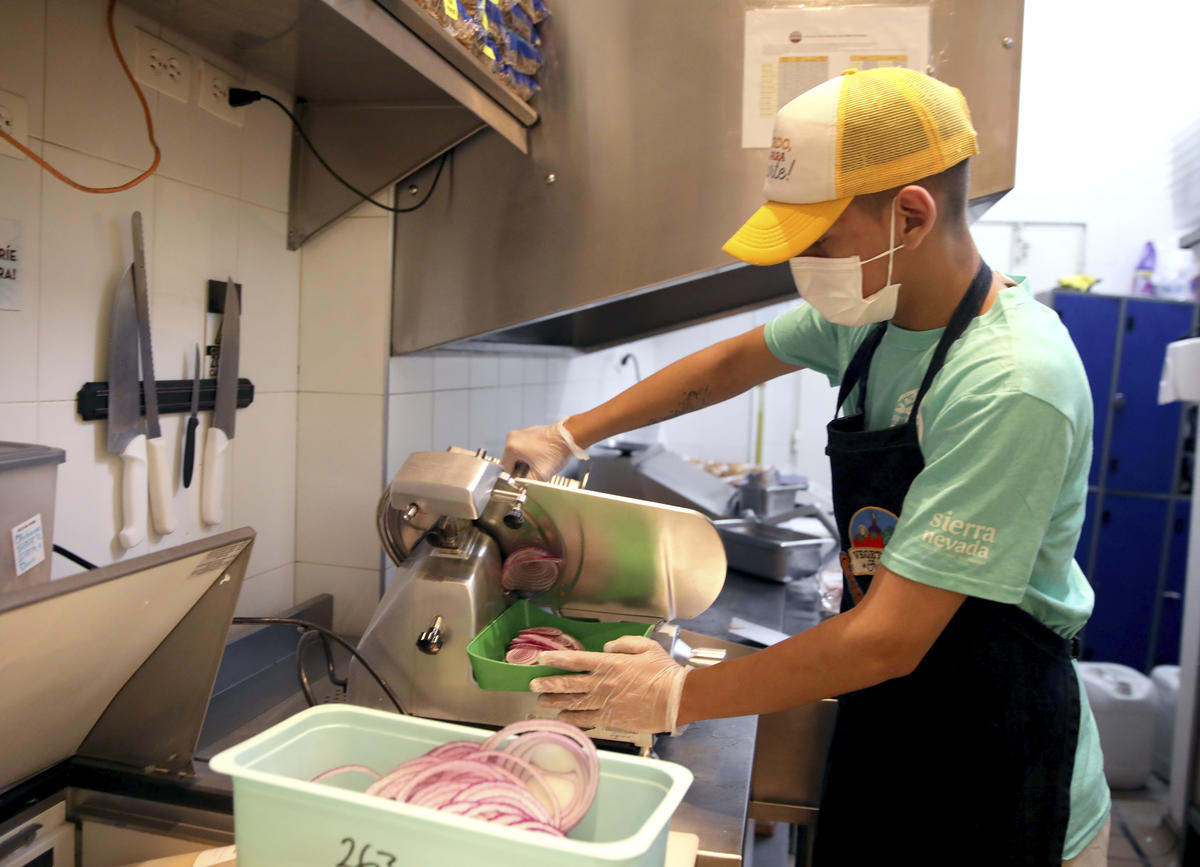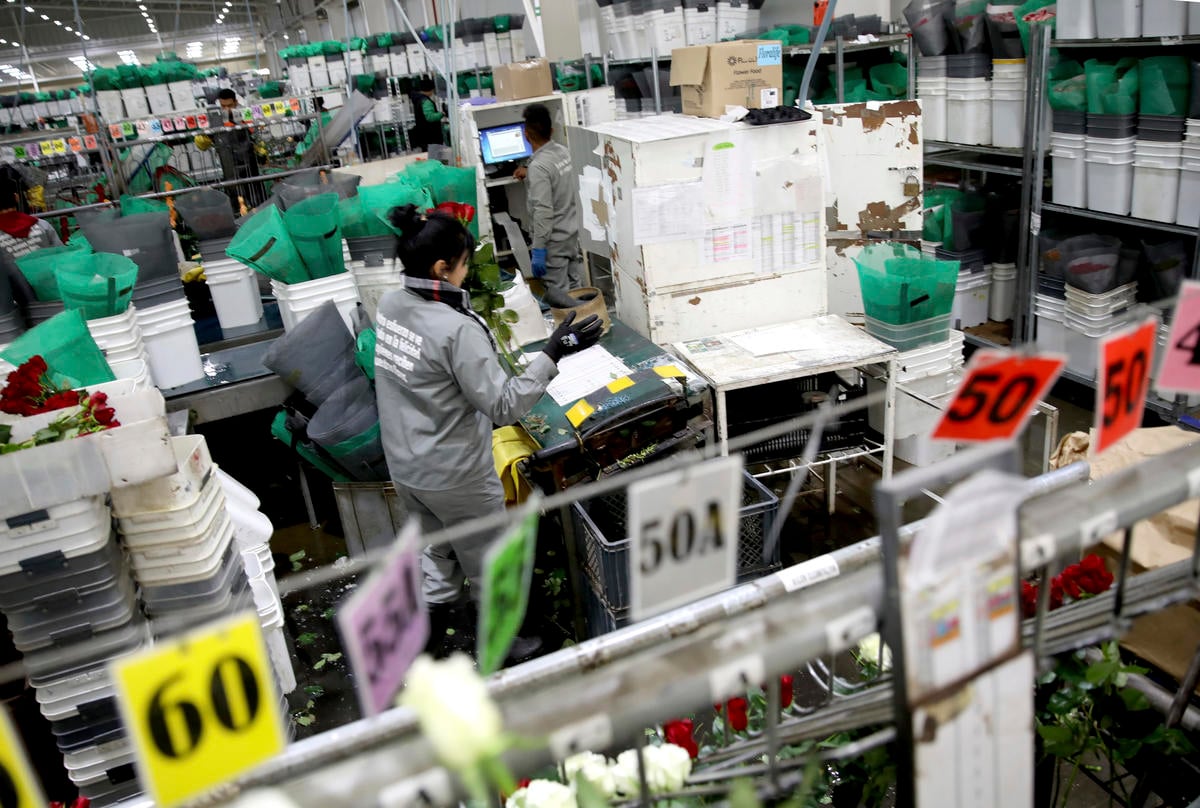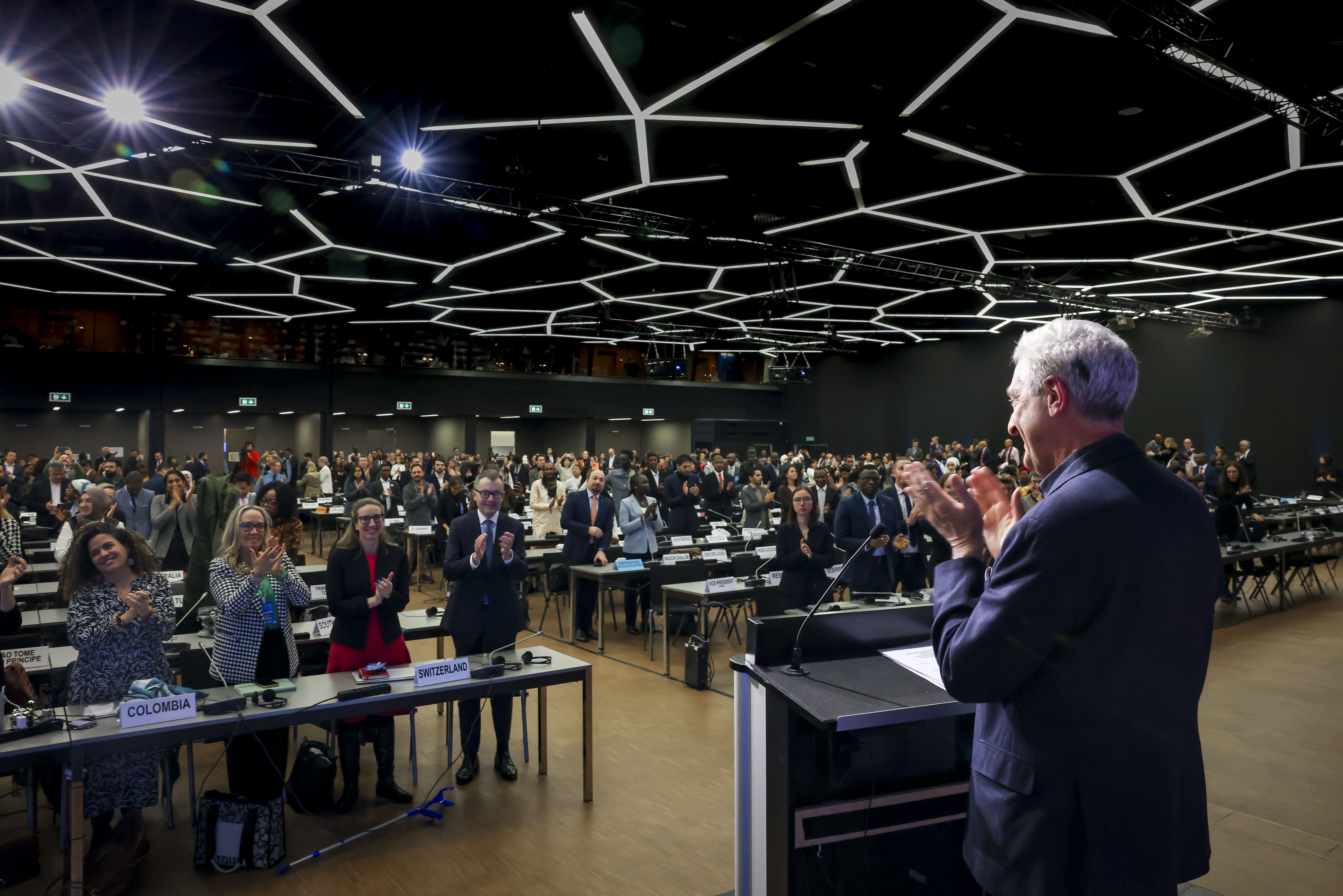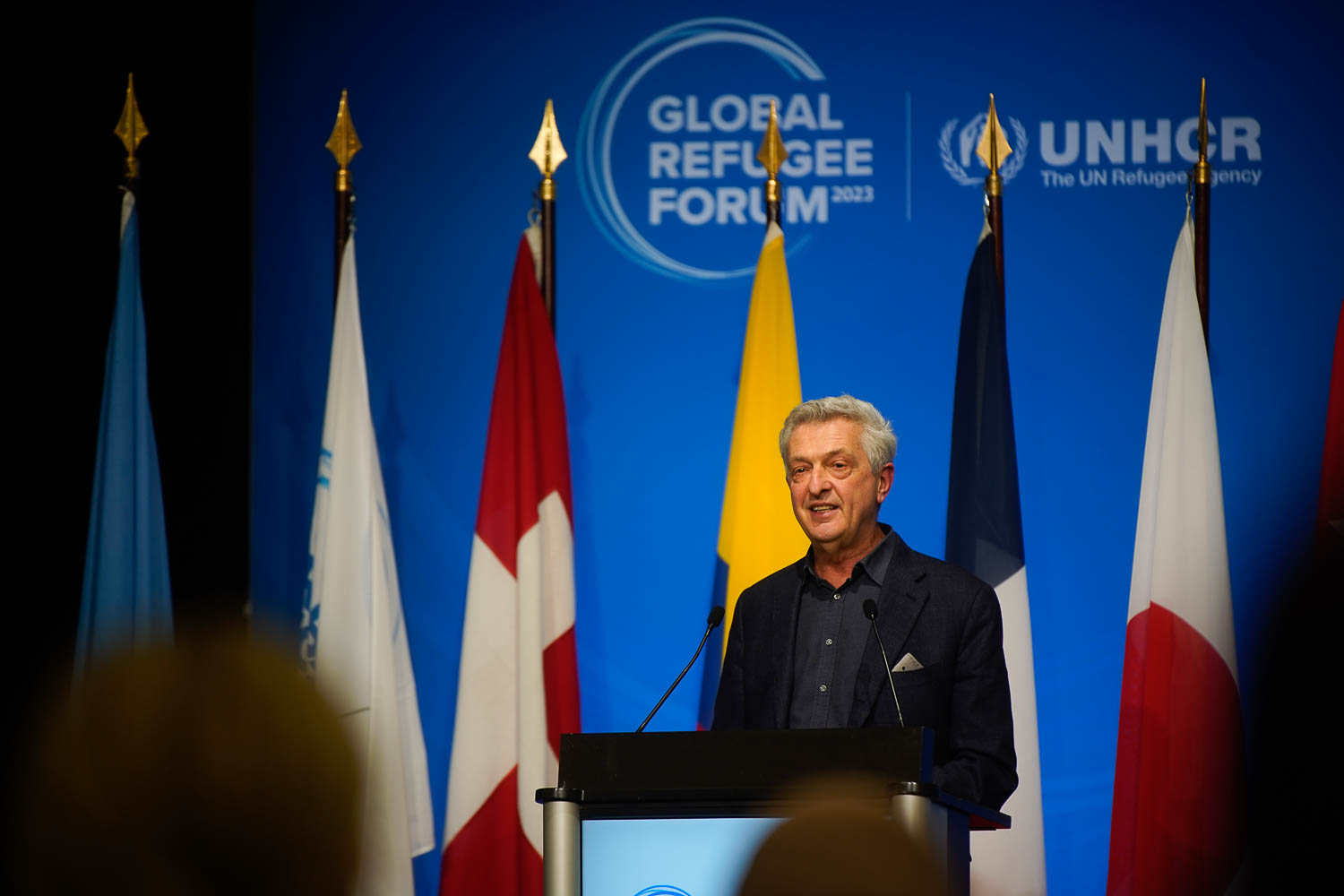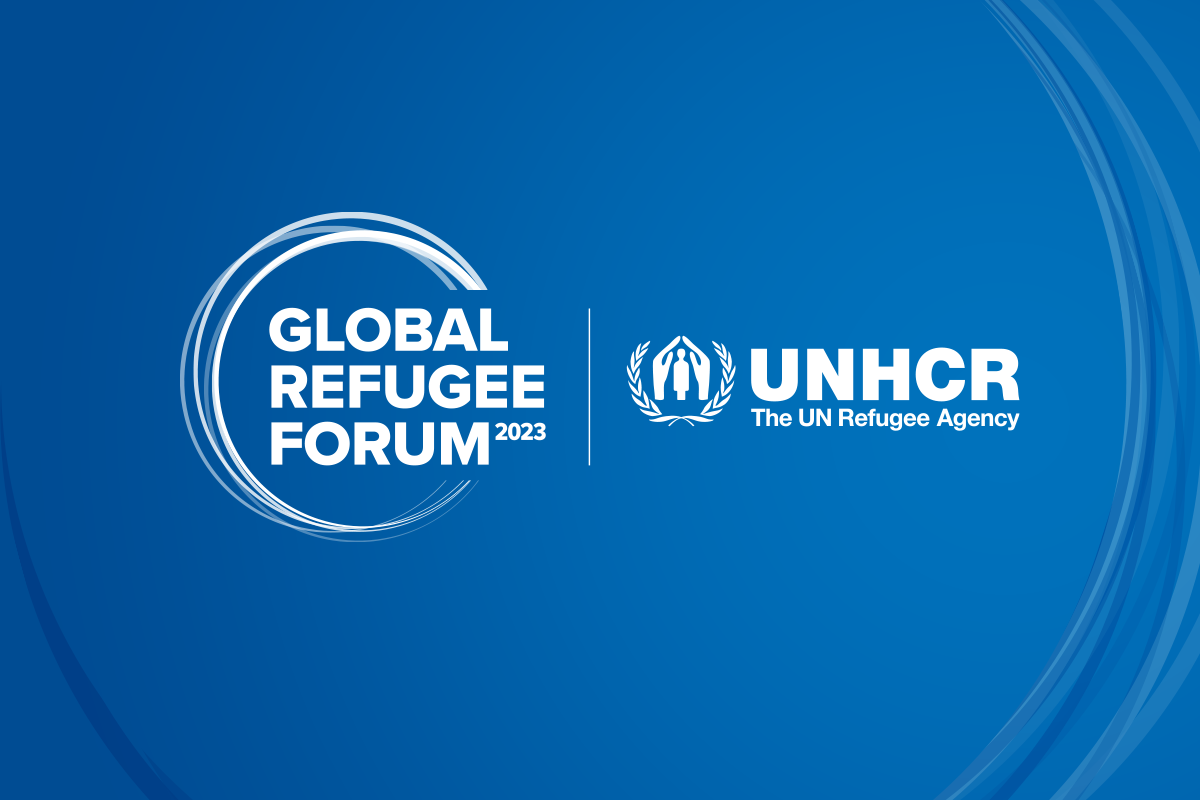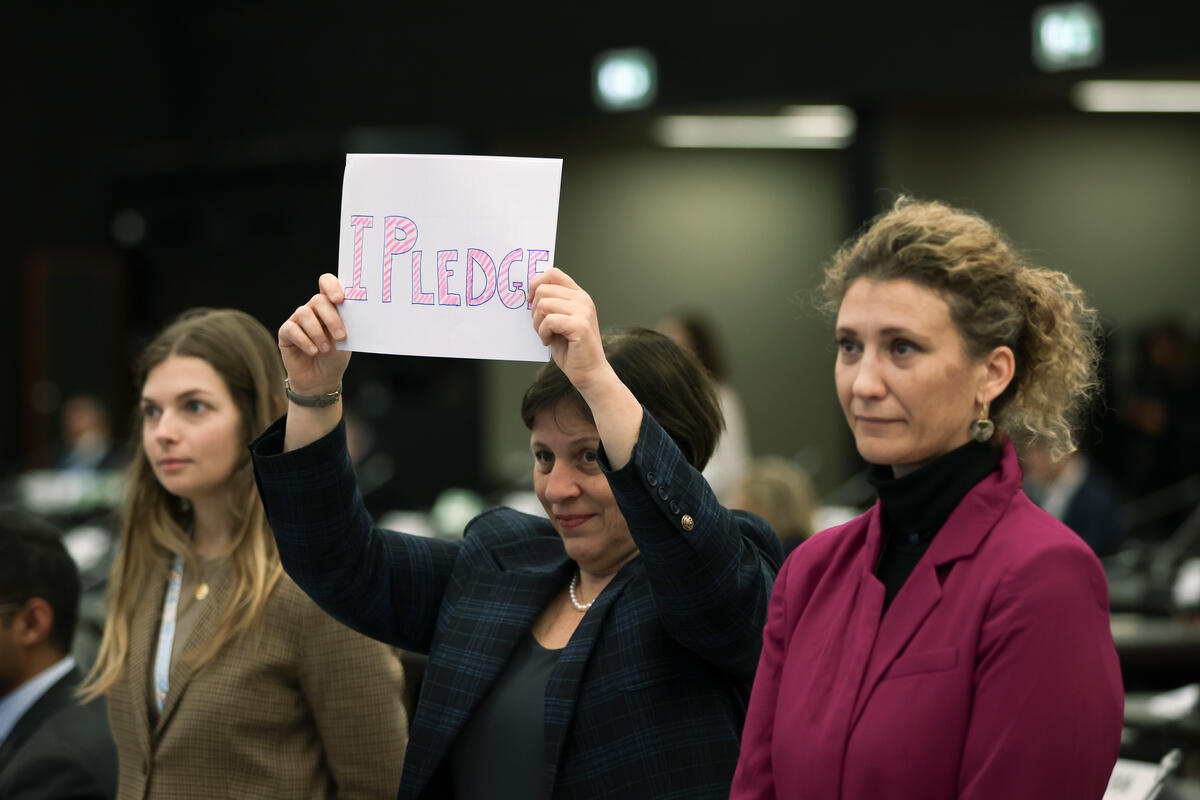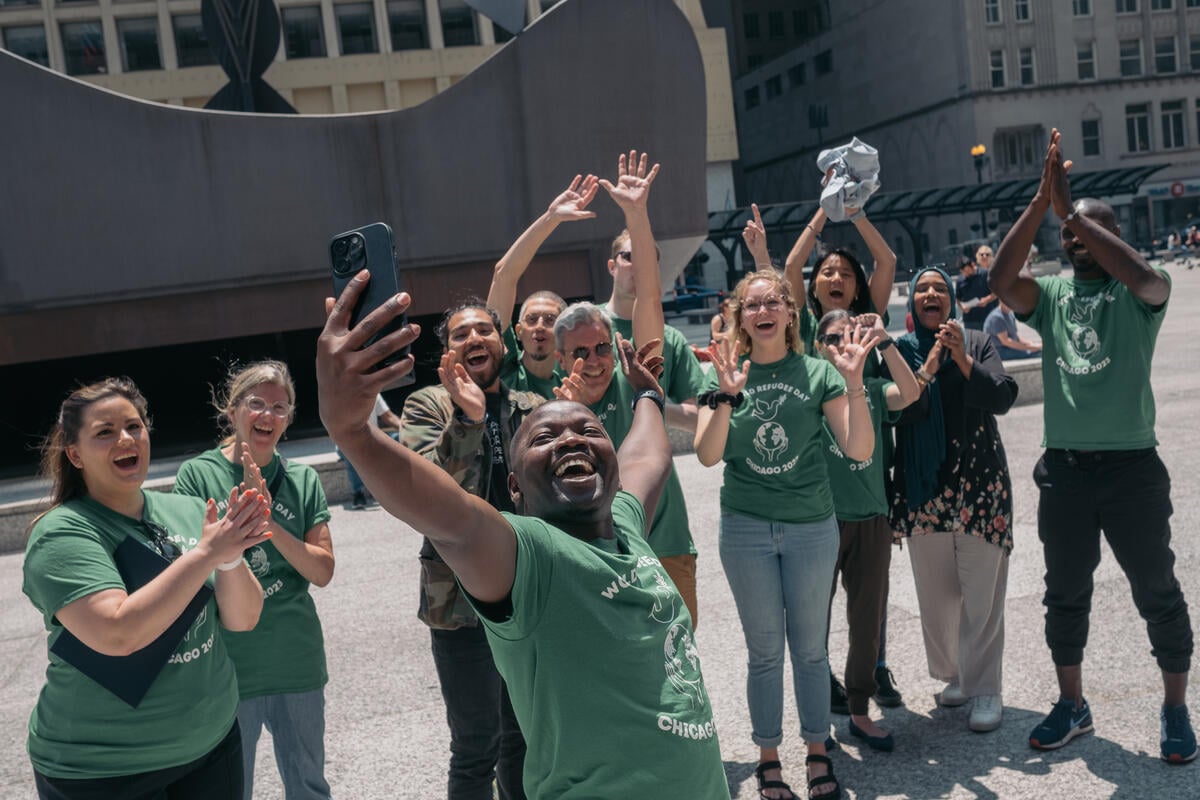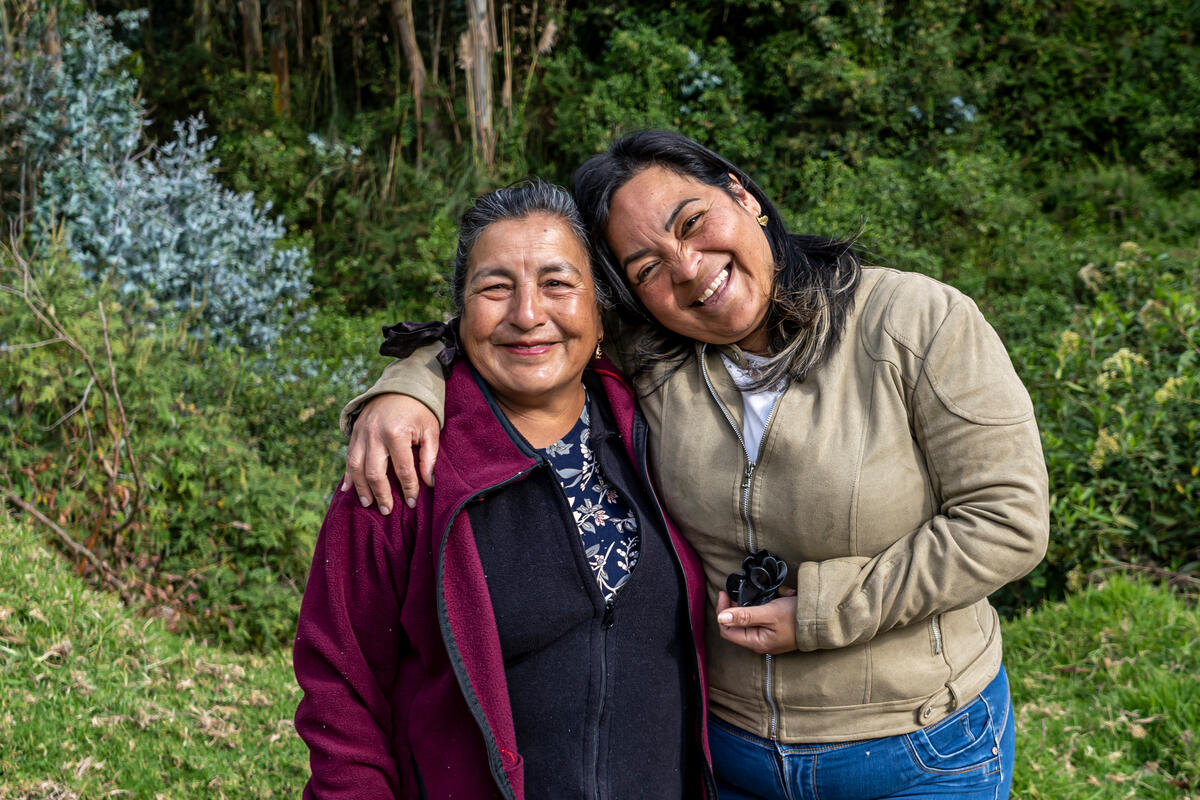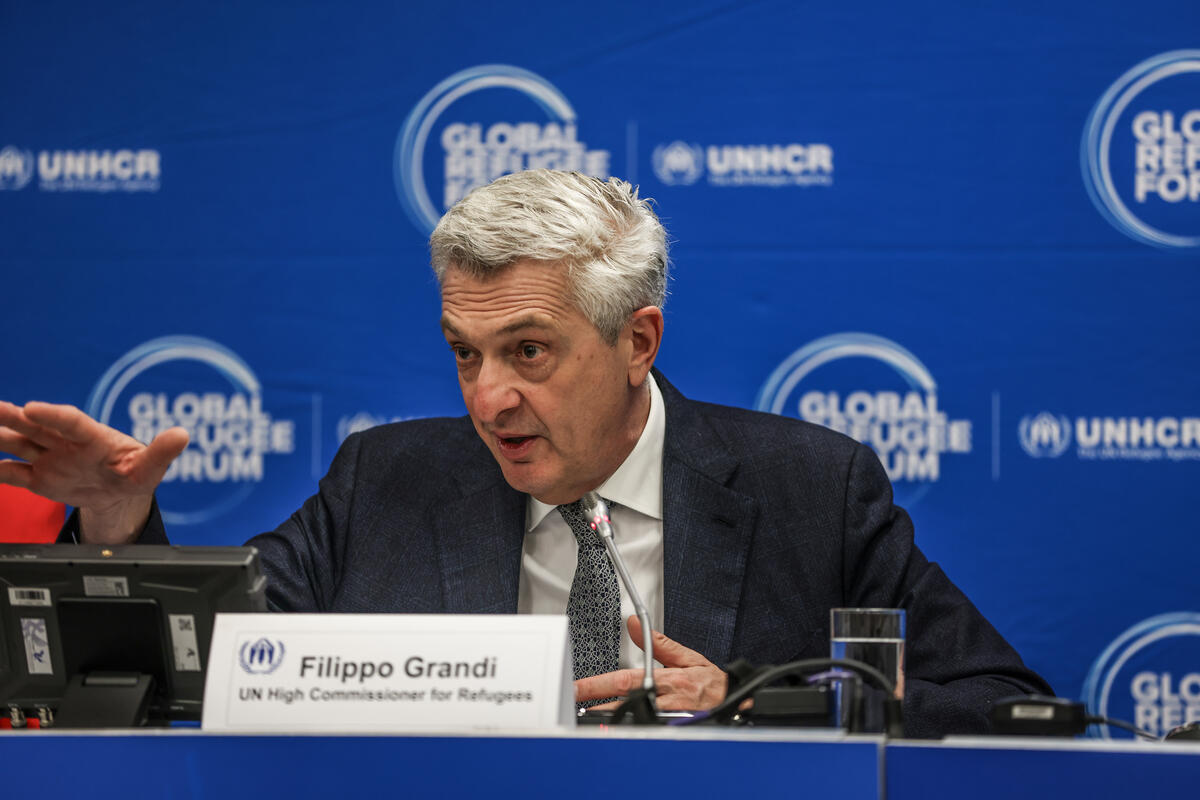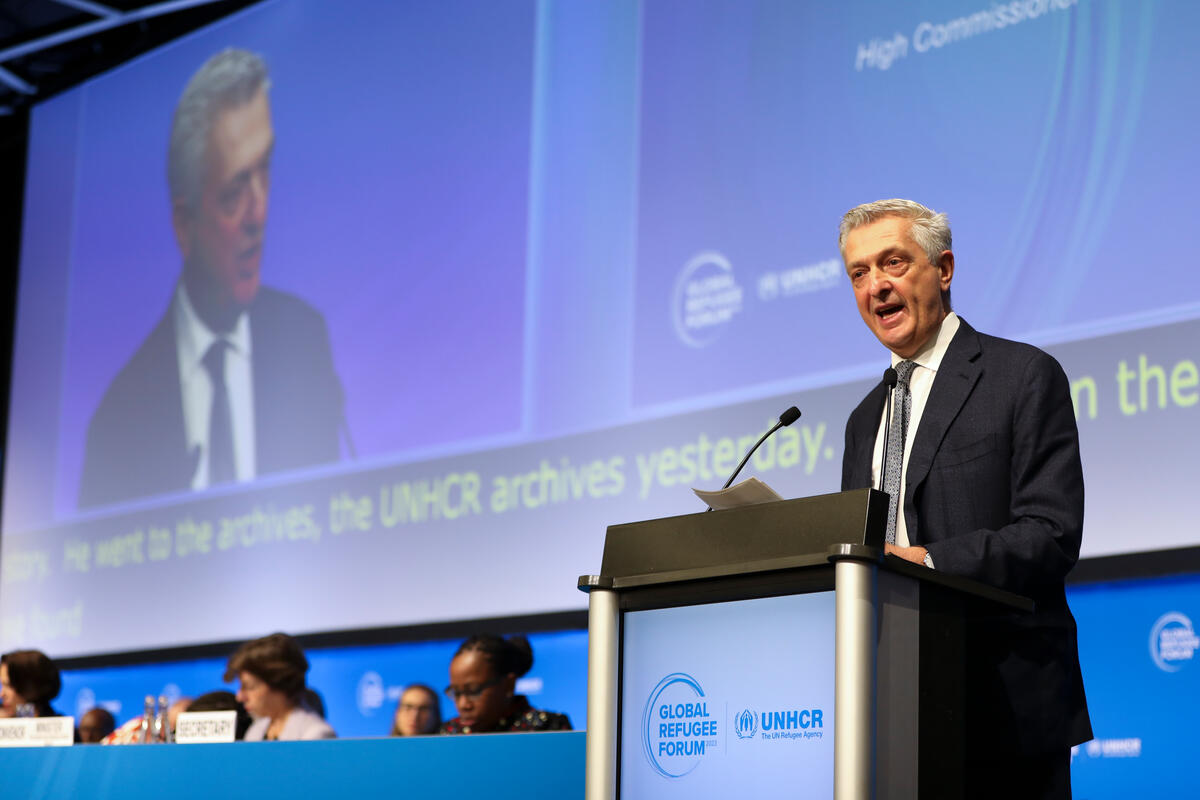Colombia's private sector begins to open its doors to Venezuelans
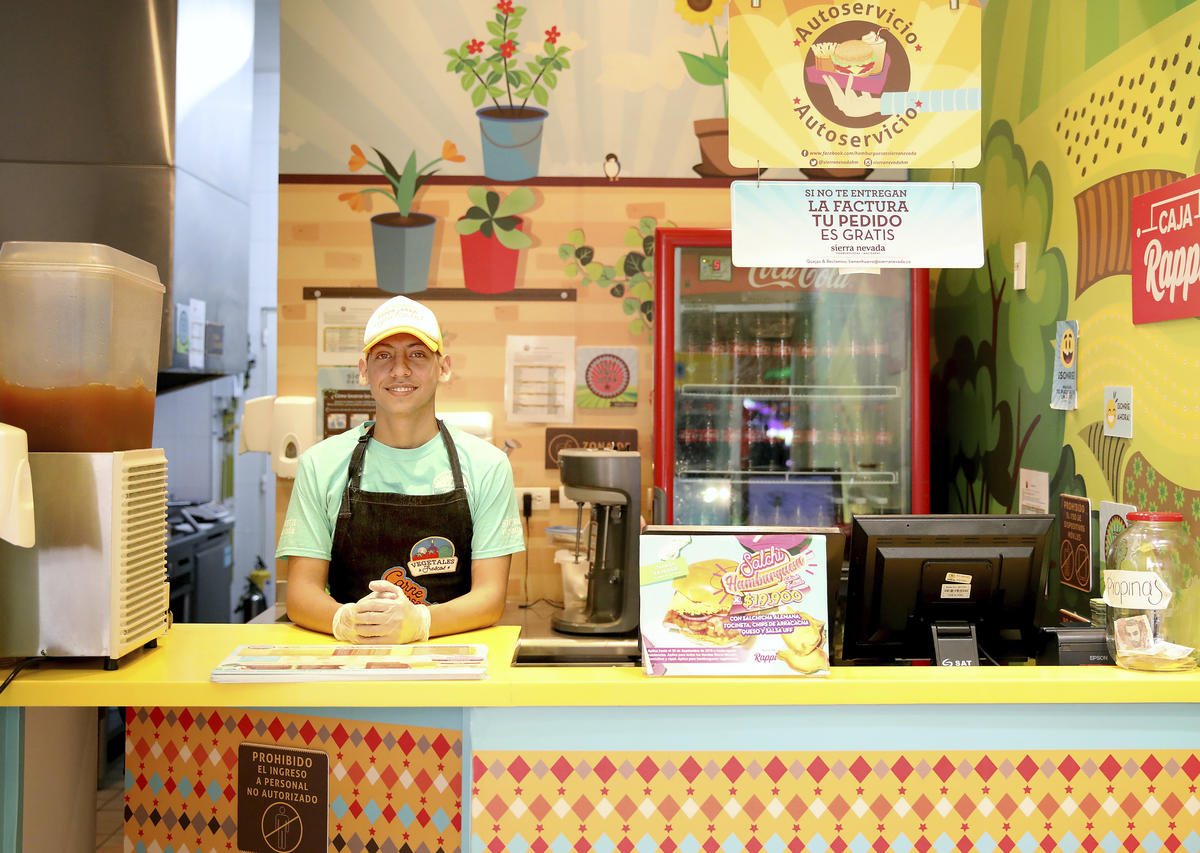
Colombia's private sector begins to open its doors to Venezuelans
Venezuelan César Jiménez Martínez has been deaf since birth and is now a refugee. But Colombian fast-food firm Sierra Nevada looked beyond the challenges he faces and recognized in him a good employee.
“When I got to Bogotá, I printed out a whole bunch of CVs and started going from company to company, looking for any kind of job. But no one would hire me,” said César in sign language through an interpreter. “So when I went to my interview at Sierra Nevada and they asked me to start the next day, it was such a good feeling.”
The local burger and milkshake chain is among a small-but-growing number of private sector players in Colombia that have begun to open their doors to Venezuelan refugees and migrants, stepping up to offer what experts say is among the most critical predictors of a refugee’s future success – steady employment.
Several months after César arrived in Bogotá from his home in the northern Venezuelan city of Maracay, a friend told him about a job listing he had seen on Facebook specifically reaching out to refugees and migrants, the LGBTI community, and those, like him, with specific needs.
“We find that our Venezuelan workers are some of our best employees”
Management at the company had taken the decision to adopt inclusive hiring practices, even going so far as to establish target quotas for each of the groups. It has paid off in spades, company executives say.
“We find that our Venezuelan workers are some of our best employees,” said Marcela Covelli Escobar, human resources director at Sierra Nevada. “They’ve been through so much and are so happy and grateful to have a job that they really go the extra mile.”
Venezuelan refugees and migrants now make up roughly 20 per cent of Sierra Nevada’s 160-strong workforce, and César is one of 17 deaf employees.
He works mostly in the back of the house, at the frying station and the grill—his favorite—and his earnings cover the modest apartment where he lives with his wife and infant son, as well as all the family’s other expenses. He is even able to occasionally send money home to his mother and other family members who stayed behind in Venezuela.
An estimated 4.5 million Venezuelans have fled shortages, rampant inflation, insecurity and persecution, mostly to other South American nations, from neighboring Colombia in the north to Argentina and Chile at the continent’s far southern tip.
This week UNHCR, the UN Refugee Agency, and the International Organization for Migration launched a US$1.35 billion plan to respond to the growing needs of Venezuelan refugees and migrants in Latin America and the Caribbean and the communities hosting them.
In Colombia and beyond, many struggle to obtain working papers, sometimes accepting pay that is considerably below the minimum wage out of desperation – which ultimately hurts both Venezuelan and Colombian workers alike. And even those who manage to obtain the right to work often recount tales of having been summarily dismissed from job interviews as soon as recruiters learn their nationality.
Still, Cesar is not alone in finding new hope in a new job.
Laura Espinosa,* 37, is also supporting herself and her family thanks to the explicit decision by another private company to hire Venezuelan refugees and migrants. Formerly a public servant in Venezuela, Laura gave up a more than decade-long professional career to start over from scratch in Colombia.
Soon after fleeing, she heard that flower exporter Sunshine Bouquets was hiring hundreds of Venezuelan refugees and migrants to work during the pre-Valentine’s Day high season. Those selected would be bused from Cúcuta, the city along Colombia’s eastern border with Venezuela that is the entry point for many refugees and migrants, to Tabio, north of Bogotá, where Sunshine Bouquet has some of its mammoth greenhouses, as well as a bouquet-making facility.
“Every day, I’m thankful they opened the doors to me here”
The workers would be provided food and lodging – in tidy rows of trailers kitted out with hot water and other amenities – during the month-long gig, allowing them to pocket the entire salary of Colombia’s roughly US$250 monthly minimum wage, plus overtime.
“I had always worked white-collar jobs and had never done any sort of manual labor,” said Laura, who works in the greenhouses, tending to the rows of roses and also building the bouquets that are flown daily to U.S. retailers like Walmart. “But I was so happy for this opportunity, and I rolled up my sleeves and gave it my all.”
Laura wowed her bosses and was offered a long-term position once the high-season gig was done. She has moved her parents and seven-year-old daughter into an area apartment and is supporting the whole family on her wages alone.
“Every day, I’m thankful they opened the doors to me here, because as hard as leaving Venezuela has been for us, it’s been much easier than for so many others, thanks to my job,” she said.
Employment is a key component of the protection of refugees, asylum-seekers, and migrants in their host countries, and livelihoods is one of the pillars of the Global Compact on Refugees, a historic 2018 deal to forge a stronger, fairer response to refugee movements.
The Global Compact is the foundation of the upcoming Global Refugee Forum, which will bring together governments, international organizations, local authorities, civil society, the private sector, host community members and refugees themselves. The Forum aims to ease the burden on host communities, boost refugee self-help, and increase opportunities for resettlement. The inaugural Forum is to be held in Geneva on 17-18 December.
*Name changed for protection reasons.

